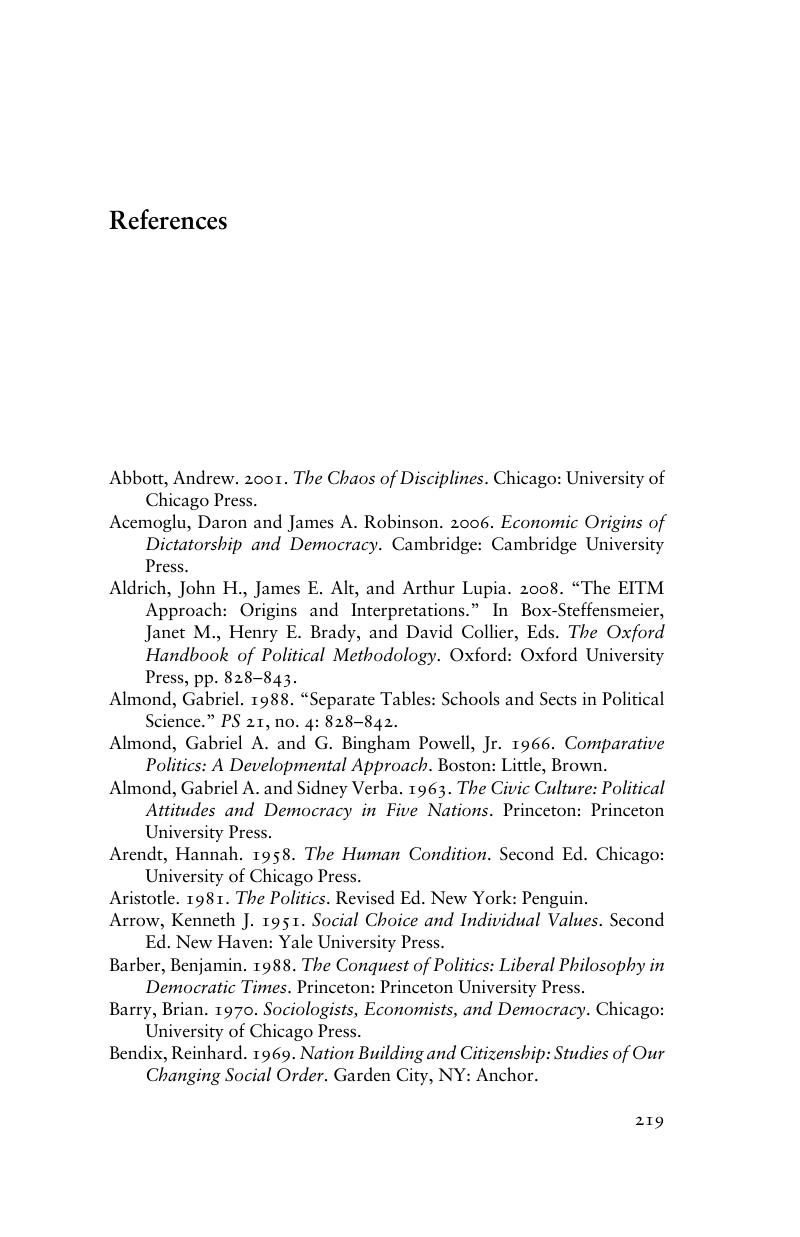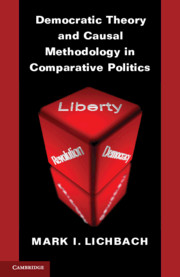References
Published online by Cambridge University Press: 05 May 2013
Summary

- Type
- Chapter
- Information
- Democratic Theory and Causal Methodology in Comparative Politics , pp. 219 - 228Publisher: Cambridge University PressPrint publication year: 2013



